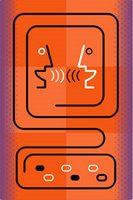 The following is a guest post by John Garruto, school psychologist with the Oswego School District and member of the IQs Corner Virtual Community of Scholars. John reviewed the following article and has provided his comments below.
The following is a guest post by John Garruto, school psychologist with the Oswego School District and member of the IQs Corner Virtual Community of Scholars. John reviewed the following article and has provided his comments below.- Kalyuga, S. (2006). Rapid cognitive assessment of learners’ knowledge structures. Learning and Instruction, 6, 1-11. (click here to view article)
Last week, I attempted to get a head start on this summer’s coursework by reading my text on psychopharmacology. I needed to read the pictures a few times on the properties of neurotransmission and, even now, I am sure I would mess it up. However, if a new intelligence test comes out on the market and one were to describe the task to me, I could likely quickly identify the broad and narrow ability associated with it. This is related to the concept of schema…our mental representations of various learned concepts. The more advanced the information in our schema--the easier it is to pick up new information. Furthermore, we can access the information within our well-developed schemas rapidly.
Kalyuga’s article gets at the heart of our knowledge structures or schemas. Kalyuga discusses that the draw on working memory is not as substantial when our schemas are well developed. When information is so familiar to us…we can quickly draw upon that information, use it, and "refile" it for later use (my interpretation-not mentioned in the article.) When information is still new-we are still solidifying our learning-we may need to call upon many of the related concepts in working memory.
- I would probably be well served to comment on Kalyuga’s specific study-although I did not find the study to be as significant as the information leading up to it. In general, Kalyuga examined four types of schemas: change, group, vary, and restate. He related it to the types of schemas one used to solve word problems. The subjects were required to write only the first step to solving the math word problem. If the first step was a setting up of the problem, less points would be offered. If the first step (automatically retrieved) was the answer or something where a logical second or third step was actually as a first step…higher points were offered (because the students did not need to analyze the problem-it had been rapidly executed already.) Although time certainly decreased for rapid assessment, the score was higher for traditional assessment methods. The point of Kalyuga’s article is well taken that we can use rapid assessment to determine how well developed our schemas are and subsequently target intervention. However, because attack of advanced word problems has been drilled into many students that one needs to show all work and all steps-that can be a learned habit.
- So although the specific study did not have a lot of personal relevance, I have to say that the background leading up to it was huge. How one attacks a problem is just as important as the answer (which is why school psychologists should pay careful attention to test behavior). John Horn, in Dawn Flanagan’s and Patti Harrison’s excellent second edition of Contemporary Intellectual Assessment (2005), talks about the role of the expert and how the expert uses different processes. There has been talk, for example, that one could use both visual-spatial reasoning as well as fluid reasoning to solve the block design tasks. Which technique is used can be a testament to how developed the skill is.
- The bottom line…there seems to be tremendous utility for linking new information with older information. The more we learn new information into our existing schemas, the more meaningful that information is. The more meaningful it is, the easier it is to learn new information that is related. This taxes working memory less and allows us to acquire the new information more quickly. The idea of rapid cognitive assessment (almost by an associative technique) makes some sense just to show how familiar the material actually is. This can be a rich area for exploration in terms of linking assessment with intervention.
Abstract
- Traditional assessment methods are not always suitable for diagnosing learners’ knowledge structures at different levels of their expertise. This paper describes an alternative schema-based rapid assessment technique and its application in the area of arithmetic word problem solving. The technique is based on an assessment of the extent to which working memory limits have been altered by solution schemas held in long-term memory. In an experiment (N = 55, Grade 8), the average test time was reduced by a factor of 2.8 in comparison with a traditional test, with a significant correlation of 0.72 between scores on both tests.
Technorati Tags: psychology, educational psychology, education, learning, schema, working memory, psychological assessment, IQ testing, CHC theory
